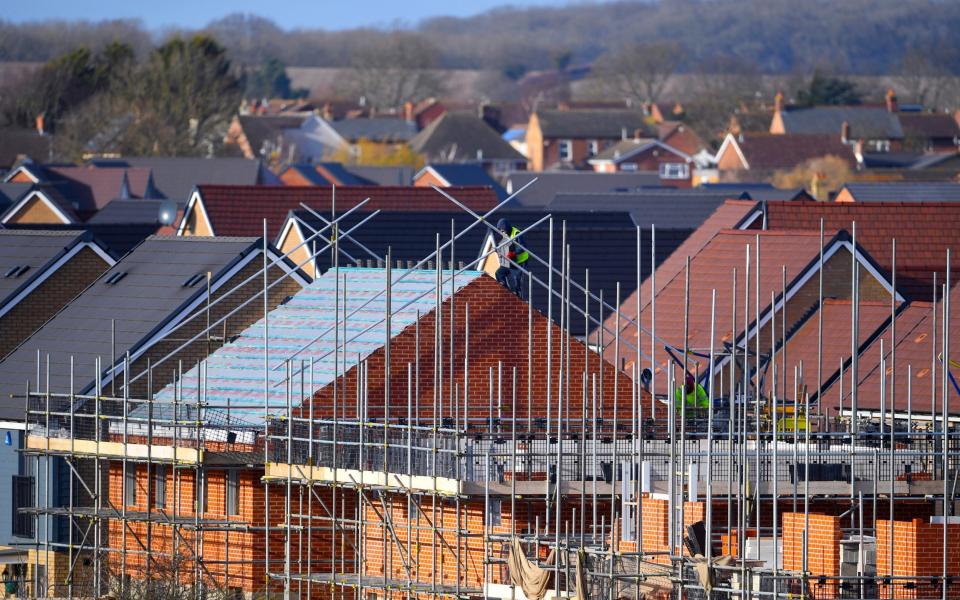Interest rates might dampen house prices – but investors would be foolish to ignore this builder

A house price crash is not guaranteed to take place over the coming months. Certainly, factors such as rising interest rates and a cost of living crisis are likely to act as a drag on the housing market because of their negative impact on affordability.
But assuming that these circumstances are certain to prompt an early 1990s or late 2000s-esque slump in property prices could be a grave mistake.
After all, rapidly falling commodity prices that ease today’s rampant rate of inflation could lead to a far less hawkish monetary policy that supports house prices. Even if interest rates do continue to rise, some prospective buyers may even be encouraged to lock in lower rates.
In Questor’s view, trying to predict the short-term outlook for the housing market is pointless. There are simply too many variables that could affect prices but cannot be accurately forecast.
However, there are opportunities for long‑term investors to take advantage of current downbeat market assumptions. Housebuilders such as Barratt Developments, for example, trade on extremely low valuations that do not appear to factor in their growth potential over the coming years.
The stock currently trades at about six times forecast earnings. This suggests that investors are assuming that extremely difficult trading conditions that will cause a vast deterioration in its profits are ahead.
While that may or may not prove to be accurate, the long‑term outlook for housebuilders is upbeat. There is, and has been for many years, a fundamental imbalance between property demand and supply. For example, England’s population increased by about 390,000 a year between 2010 and 2020. Over the same period, just 135,000 new homes were built annually.
It is impossible to say whether the recent rate of population growth will persist. Likewise, planning rules could tighten or loosen depending on the government of the day. But the premise that a multi‑decade supply/demand imbalance can quickly, or easily, be corrected is flawed in this column’s view.
Moreover, while major housebuilders hold vast land banks in what is essentially an oligopolistic industry, there is unlikely to be a wave of new development that boosts supply over the coming years – unless it is accompanied by house price rises. Barratt spent more than £1bn on land last year and aims to have an owned and controlled land bank of four and a half years. Further information on its recent performance will come with full-year results due on Sept 7.
Even if there is a housing market downturn, the company’s £1.3bn in net cash will give it the financial means to survive. It could even capitalise on lower land prices to further boost its long-term profit potential. It may also wish to make further acquisitions following the recent £250m spent on land sourcing specialist Gladman Developments should asset price falls present opportunities to buy rivals or complementary businesses at attractive prices.
Undoubtedly, there are threats to Barratt’s future profits. The company’s cladding bill recently rose by about £400m, while the Government’s new 4pc Residential Property Developer Tax will cut the profits of all major housebuilders. Meanwhile, rising input costs and an increasingly downbeat economic outlook remain threats to the industry’s prospects.
However, in Questor’s view those risks are more than adequately priced into the company’s valuation. Its shares have fallen by 35pc since the start of the year. They are down by a similar amount since we first tipped them in January 2020. In doing so, they have heavily underperformed the FTSE 100 index.
With favourable industry supply/demand dynamics, solid finances and a strong market position, the long‑term prospects for the shares are extremely positive. Weak investor sentiment prompted by fears of a housing market bust could hold them back in the short run. Those who can look beyond current uncertainty are likely to be richly rewarded in future years.
Questor says: buy
Ticker: BDEV
Share price at close: 486.9p
Read the latest Questor column on telegraph.co.uk every Sunday, Tuesday, Wednesday, Thursday and Friday from 5am.
Read Questor’s rules of investment before you follow our tips.

 Yahoo Finance
Yahoo Finance 